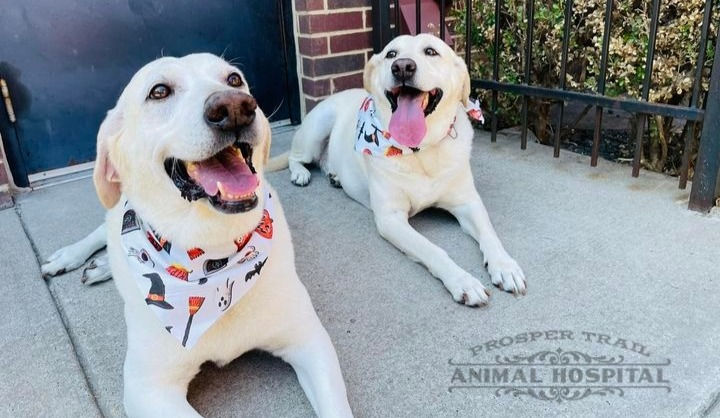New Pet? Set Your Existing Pets up for Success!
- Jessica

- May 5, 2025
- 3 min read
Bringing home a new pet is an exciting time for a family, but can be an adjustment for existing pets in the household. Not all pets will become best friends right away, but that's okay! In this blog, we'll discuss ways you can set your pets up for success when bringing home a new family member.
Let them smell each other first
When possible, allow the pets to get a whiff of each other before they meet by presenting each pet with something belonging to the other pet - toys, bedding, or blankets containing the scent from each pet can start to create some familiarity that may make the eventual introduction go more smoothly. Keep in mind that animals rely much more heavily on scent that we do!
Have a separate space for each pet
Having separate spaces for your pets can be advantageous for several reasons: for starters, it can help minimize any territorial feelings your existing pets may have towards a new pet being in their space. By providing your new pet with their own space to sleep, eat, or drink, you can hopefully eliminate any kind of struggle for dominance. Plus, some pets may find introductions a little bit stressful, and having a safe space to retreat and relax can help diminish any feelings of anxiety that may be caused by the new arrival.
Don't rush the introduction
While you may be eager for your pets to meet each other, you don't want them getting off on the wrong foot. It is worthwhile to take your time and go slow, especially if you have any concerns about how the pets might get along before they meet. Some ways you can build up to an introduction include letting pets hang out in adjacent rooms and sniff each other through the doors or through a fence. This way, it feels like less of an ambush when a new pet suddenly appears.
Choose a neutral territory
While this can be more difficult with cats, we recommend introducing dogs in a neutral area whenever possible! Some pets may feel inherently defensive when new animals enter their domain, so public areas with no personal attachment are ideal. It's no so crazy when you think about if: if someone suddenly showed up in your house, ate your food, and played with all of your toys, you might feel a little wary and defensive, too.
Control the situation
We recommend choosing a calm and open space, keeping both pets leashed, and allowing them the time and space to slowly approach each other. Pets can become stressed or fearful when their personal boundaries feel threatened, which can sometimes happen when introduced to new pets. Not all pets will be welcoming to a stranger running up to them and trying to sniff or play, so help facilitate a good first impression and avoid any fear-response behaviors such as growling or snapping, go slow and don't rush the process!
Have realistic expectations
Best case scenario, your new pet hits it off with your other pets immediately and they all become fast friends. However, it is important to keep in mind that not all pet personalities will be immediately compatible. For example, senior pets might not have the patience to keep up with a new puppy or kitten's energy. This should also be an important consideration when choosing a new pet, especially if companionship for your existing pets was a factor in the decision to bring in a new family member.
Don't feel discouraged
If the initial meeting doesn't go exactly as you hoped, don't feel discouraged. Some pets simply need more time to acclimate to the new family dynamic. While your pets are getting to know each other, we recommend close supervision in the house and keeping them separate when you are not around as a safety precaution.
If you have any questions or concerns before or after bringing home a new pet, please contact us at 972-347-6100 for further recommendations.
Click here to schedule an appointment. https://connect.allydvm.com/practice/prosper_trail/appointment_request





Comments